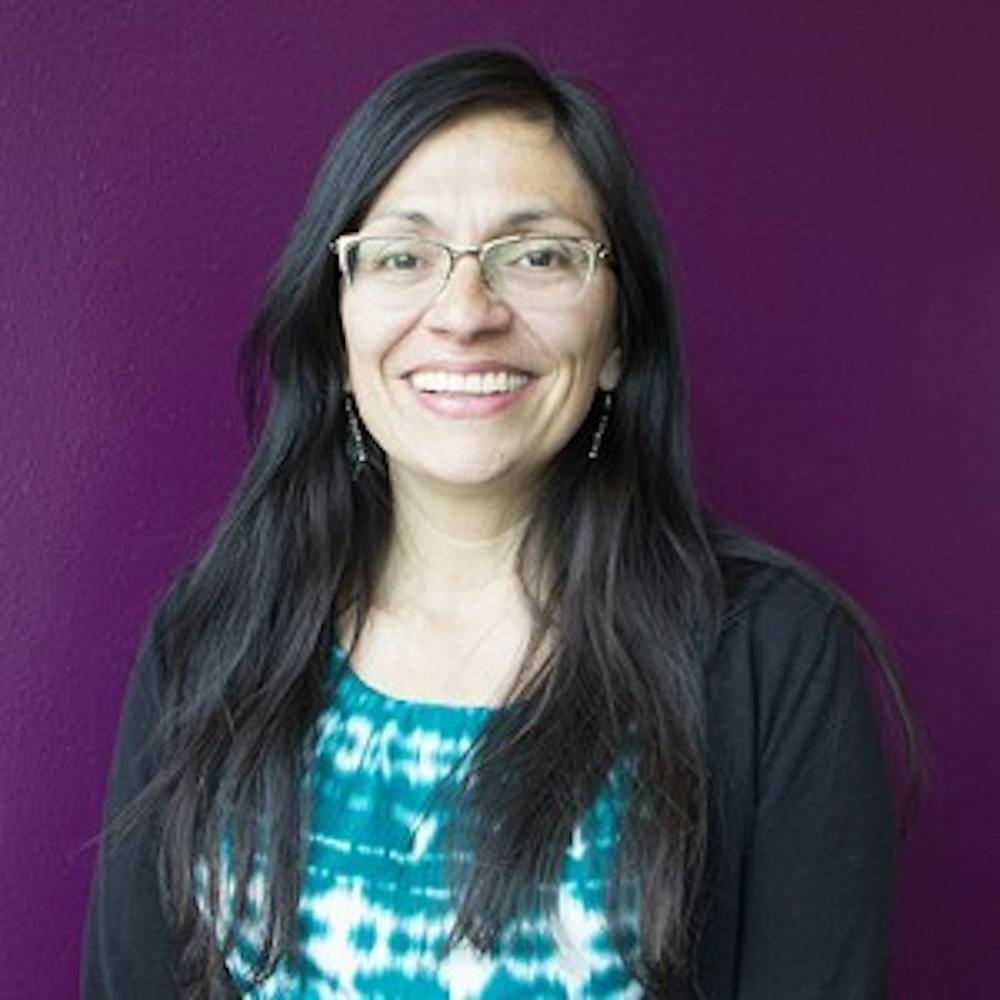Irene Vasquez is the director of the Chicana and Chicano Studies department at the University of New Mexico. Vasquez started the position in 2013 and from there helped UNM establish not only the department but also the ability to obtain a bachelor’s degree in CCS as well. Vasquez’s passion for collegiate-level teaching stemmed from her experiences as a child and the lack of adequate publications on communities of color, and she is continually working to educate further on marginalized groups.
Vasquez found limited material available on communities of color while teaching as a middle school substitute teacher during her master’s program. According to Vasquez, small textbook blurbs on Martin Luther King Jr. failed to communicate the rich history of people of color, and institutions of higher education play a special role of forming course materials and educating teachers on specialties like CCS.
“For me, learning about Chicana and Chicano studies (in college) was life-changing because it gave a critical framework for understanding the history of my family, the history of our relationship to the U.S./Mexico border and the importance of understanding our ancestral and cultural roots,” Vasquez said.
Although CCS was founded as an academic program in 1970 at UNM, it didn’t become a full-fledged undergraduate degree until 2013. In 2014, CCS was converted into a department, where eventually paths to both a master’s and a doctorate degree were approved in 2018.
Friend and coworker Tanaya Winder recalled meeting Vasquez at a cultural conference shortly after Vasquez started her position at UNM and being impressed by her initiative to get involved with the local community.
“I think it’s rare for people to just so immediately try to get to know the community that they’re in,” Winder said.
According to Vasquez, all ethnic studies programs have always had an orientation towards the larger community outside of the university. She continually asks the question of how to help the people who are struggling to get a college education, especially with the economic inequalities and uncertainties that are emerging amidst the pandemic.
“We know, across these communities, these folks have (fewer opportunities), and many tend to fall through the cracks,” Vasquez said. “We are even more committed to the idea that Chicana and Chicano studies should be available everywhere ... because we know that folks are interested in learning about how diverse the history of this state is, and how important Latino and Latina populations have been in the United States.”
Vasquez, who grew up in a small, rural California town, went on to earn her Ph.D. from the history department at the University of California, Los Angeles. She started out her career as a college educator at a community college in East Los Angeles and remained in California, where she became the head of the CCS department at California State University, Dominguez Hills.
“(My studies) gave me a chance to understand my identity and to be proud of it,” Vasquez said.
Upon being sent the job description for her current position at UNM, Vasquez recalled the department being in a transitional state, where more work needed to be done to form a CCS bachelor’s program.
Get content from The Daily Lobo delivered to your inbox
“I felt really challenged and also very motivated and very supported by the hiring committee (at UNM),” Vasquez said. “I’m really very fortunate because we have an incredibly dynamic community of undergraduate, graduate students, staff and faculty who really want to make education accessible to communities across the state.”
Winder said Vasquez is a model of good leadership.
“I remember the first department meeting I went to, and I was just in awe of how she ran meetings,” Winder said. “I thought, ‘Wow, I have been waiting to see a woman of color leader like this in person for such a long time,’ and I thought this is the kind of leader I want to be if I ever get in this position.”
Vasquez said she was motivated to study CCS because she grew up with a Mexican American mother and an Anglo American father, and had tense travel experiences with her mother across national borders to her mother’s hometown of Ciudad Juarez, Chihuahua but never any with her father across state borders.
“My mother’s family lived in Juarez, and we often went to visit them in the summers. The experience of crossing the border and recrossing the border was always, for us, very triggering because my mother was always concerned about being able to cross,” Vasquez said. “She had her green card, but if she lost it or didn’t know what it was, we were trying to understand, ‘What is a green card?’ ‘Are they going to take our mother away?’ It was filled with such a sense of dread even though what we were doing was reconnecting with family.”
Vasquez is a strong proponent of individuals getting higher education, especially people from the communities that have so often been marginalized and disenfranchised from education.
“This is the first time, in college, where they get that opportunity to really deeply and critically explore their community’s history and experience in the United States,” Vasquez said.
Emma Trevino is the culture editor at the Daily Lobo. She can be contacted at culture@dailylobo.com or on Twitter @itsemmatr






